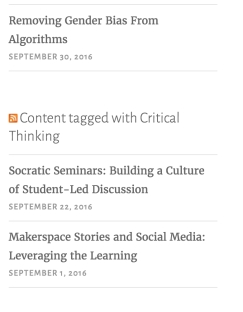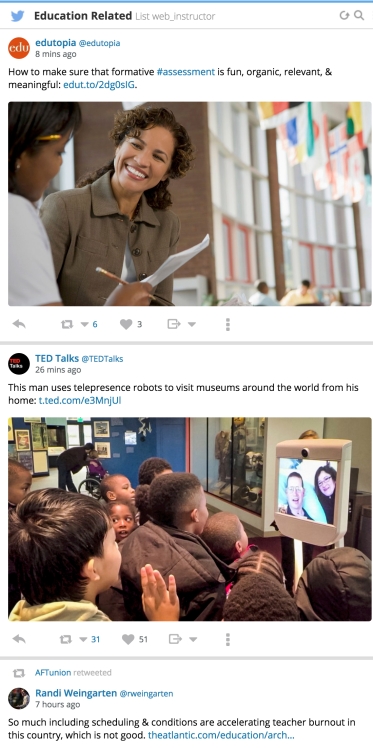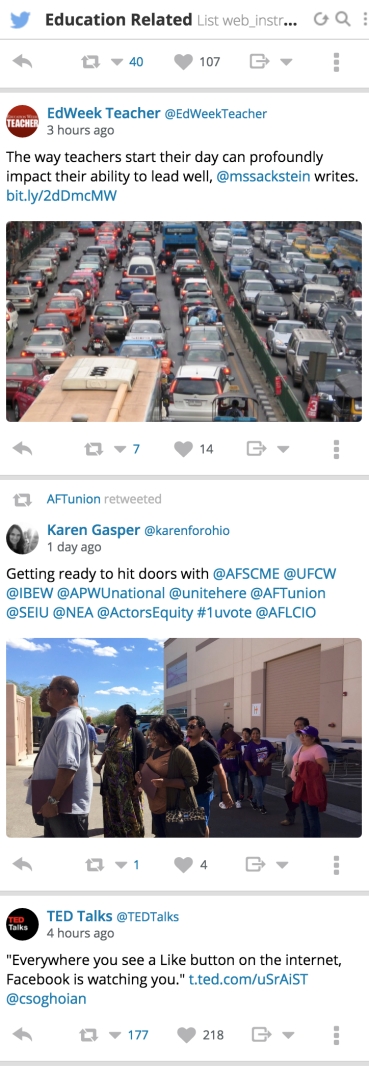I read it on the Internet to it must be true.
You may have heard this phrase said jokingly at one time or another but the reality is that we ARE constantly being bombarded with massive amounts of information and data on a daily basis –"data deluge" as Nicholas Carr (2010) describes it. As humans, we crave information. Search engines like Google and Yahoo and social networks like Twitter and Facebook feed into our information addiction.  How do we decipher fact from fiction in this digital environment that we’ve created or that was created for us? Can we filter the information we receive so that we have a balanced information diet of “information vegetables and information dessert”(Eli Pariser, 2011)? Or can’t we? Just like it’s important to have a balanced diet in our daily lives for good health, it’s important to have a balanced diet in our digital lives and not one that is solely based on “information junk food” (Pariser, 2011) and biased thinking. Lastly, we have to filter out distraction. In order to get the most out of the information technologies out there (e.g., Twitter, Text messages, email, Google), we have to develop the skill to be able to turn those technologies off (Carr, 2010) so we’re not living in a constant state of distraction.
How do we decipher fact from fiction in this digital environment that we’ve created or that was created for us? Can we filter the information we receive so that we have a balanced information diet of “information vegetables and information dessert”(Eli Pariser, 2011)? Or can’t we? Just like it’s important to have a balanced diet in our daily lives for good health, it’s important to have a balanced diet in our digital lives and not one that is solely based on “information junk food” (Pariser, 2011) and biased thinking. Lastly, we have to filter out distraction. In order to get the most out of the information technologies out there (e.g., Twitter, Text messages, email, Google), we have to develop the skill to be able to turn those technologies off (Carr, 2010) so we’re not living in a constant state of distraction.
The Information Gatekeepers
Back in the day (which really isn’t that long ago), the Internet was seen as more of a connection to the world and to each other but “there is now a shift to how information is flowing online, and it’s silent and if we don’t pay attention it will cause real problems” (Pariser, 2011). Pariser is referring to the “algorithmic gatekeepers” that filter the information that we see when look at our Facebook page or do a search on Google. Algorithms are built into the web that track what links we click on the most, what products we search for, or who we are following on Twitter and then tailor our digital experience for us accordingly. This doesn’t necessarily mean that our experience is balanced – we don’t get to filter everything that makes up our digital experience the algorithms are doing all of that for us whether we are aware of it or not.
This week I took a close look at my info diet and in all honesty, I found my info diet heavily filled with information and data that shared the same viewpoints and opinions as my own. Sure I have some information vegetables, some information dessert, and even some information junk food sprinkled in but it’s all information that would fall into my comfort zone, what I found missing were opinions and information that challenged my thinking. My “filter bubble”, described by Pariser (2010) as “your own personal unique universe of information that you live in online”, was very biased.
In reaction to this, I have added numerous RSS feeds to my blog and have created, and added to, a Twitter list that includes information outside of my present filter bubble to create a more diverse and more balanced info diet.
The Wickedness of it All
Working and teaching in the field of web development, I’m aware of the number of algorithms on the web tracking our “clicks” and what we’re searching for in order to craft a more personal digital experience. Listening to Pariser’s TED Talk “Beware online “filter bubbles”, was enlightening. I never thought of the space that I occupied online as a bubble and the information contained in that bubble was being filtered in and out by algorithms. I simply viewed my personalized digital experience as the outcome of typical online marketing tactics. Pariser (2010) makes the plea to coders on the web that these algorithms filtering all of our information “need to have coded in them a sense of civic responsibility”. He goes on to argue that algorithms don’t have ethics embedded within them and we need to have some control over our filters. Just as I can choose to follow someone on Twitter or not, I should be able to chose the criteria for what’s being filtered in and out of my filter bubble.
The whole idea of turning technologies off and filtering out distraction is truly a wicked problem. Nicholas Carr (2011) explains that finding a new piece of information produces dopamine in our brain. The production of dopamine encourages us to keep doing that activity because it makes us feel good. That’s why doing a simple product search can send you off on tangents and bombard you with information all the while hours have gone by. I understand the “data deluge” that Carr is talking about; I’ve been there. Carr also mentions that multitasking doesn’t exist. What we are doing is essentially switching our focus quickly from one thing to another and in doing so we lose our ability to distinguish important information from trivia – we become distracted. We have to learn how to filter out distraction and to turn the technologies of our distraction off. I think part of the solution boils down to self-discipline and it’s not a simple task in a “connected world”.
After watching Henry Jenkins’ video on Participatory Culture and Civic Engagement, I reflected on what I observe within the my classrooms and I don’t see a world where everyone is participating and students are engaged outside of the classroom leveraging the power of networks and getting together to learn from each other, at least not most of the time. There are clubs at the college where liked minded students engage and learn from each other, but not to the extent that Jenkins speaks of based on my personal experience. What would it take to create a more participatory culture? More guidance and information filtering so people aren’t left to learn on their own? What we don’t want is to create “feral children of the Internet” (Jenkins, 2011).
A Healthy Digital Environment
In creating a more healthy and balanced info diet to better tackle the wicked problem of teaching complex thinking, I’ve added numerous RSS feeds that focus on different areas in education, varied affiliates, critical thinking, and diversified opinions.  I also created a new list on Twitter based on education that includes people and/or organizations that provide new ideas, new insights, and that challenge my current way of thinking about teaching complex thinking as well as support it. Frequently reviewing the RSS feeds on my blog and reviewing new information on my Twitter list provides a constant stream of diverse data that has created a more balanced info diet. Every article, tweet, or feed may not entirely relate to teaching complex thinking, but it may offer insight or “leads” about different areas to explore. Regardless of the type of data stream, it’s important to be critical of every piece of information you read, see, and hear online.
I also created a new list on Twitter based on education that includes people and/or organizations that provide new ideas, new insights, and that challenge my current way of thinking about teaching complex thinking as well as support it. Frequently reviewing the RSS feeds on my blog and reviewing new information on my Twitter list provides a constant stream of diverse data that has created a more balanced info diet. Every article, tweet, or feed may not entirely relate to teaching complex thinking, but it may offer insight or “leads” about different areas to explore. Regardless of the type of data stream, it’s important to be critical of every piece of information you read, see, and hear online.
I used Hootsuite as a way to manage the Twitter list (Education Related) that I created as part of my new, healthy info diet.


I also used TweetBeam as a way to personalize a tweet show using the hashtag #education and was presented with a variety of data and information related to education. You can see in action here.

Eli Pariser (2011) sums it up nicely, “We really need the Internet to be that thing. We need it to connect us, introduce us to new ideas, new people, and different perspectives.”
References:
Altmann, G. (2013, October). [Social Network Tree] [Image]. Retrieved from https://pixabay.com/en/tree-structure-networks-internet-200795/
Carr, N. (2011, June). Information: Making sense of the deluge. [Video File]. Retrieved from http://bcove.me/7j4zpzwz
Jenkins, H. (2011, August). Participatory Culture and Civic Engagement. [Video file]. Retrieved from https://youtu.be/ZgZ4ph3dSmY
Pariser, E. (2011, May). Beware online “filter bubbles”. [Video file]. Retrieved from https://youtu.be/B8ofWFx525s
